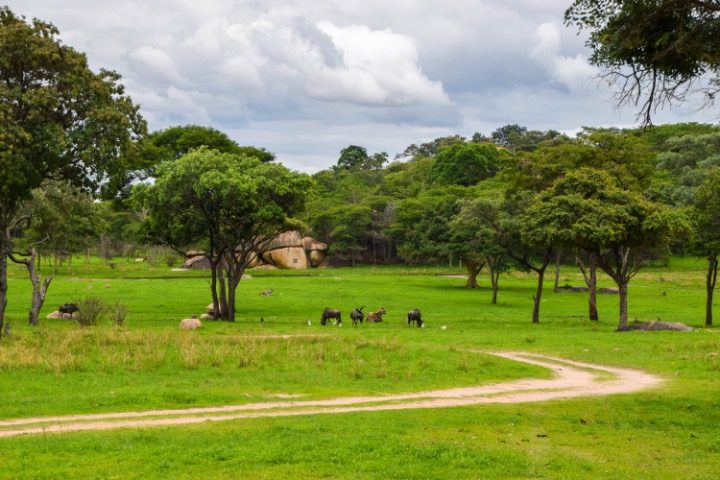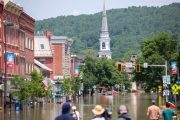
On Friday, Swiss company South Pole, one of the world’s largest carbon-offset dealers, announced that they are cutting ties with Carbon Green Investments (CGI), the owner and developer of the Kariba REDD+ project, an African reforestation project in Zimbabwe. The announcement comes just scant weeks after Verra, a U.S.-based firm that sets standards for the nebulous carbon-offset market, announced an investigation into the project.
For the uninitiated, carbon offsets are a fanciful idea by which the wealthy and large corporations can purchase credits for projects such as planting trees, which supposedly remove carbon dioxide from the atmosphere, thereby allowing them to use fossil fuels and still claim they are actively reducing greenhouse gases from the atmosphere. Al Gore became rich selling them, and they allow climate-zealot celebrities such as Leonardo Di Caprio to claim they are “carbon neutral” despite using private jets and fossil-fueled luxury yachts.
But now it seems that the $2 billion global carbon-offset market is in flux due to reports that the Kariba REDD+ project was not removing as much carbon from the atmosphere as they claim. South Pole has issued approximately 36 million credits associated with Kariba REDD+ since 2011.
“The termination follows careful consideration of the project, issues involved, and allegations that have been raised publicly. All activities related to carbon certification and carbon credits from the Kariba REDD+ project will now be the responsibility of CGI, and South Pole’s role as the carbon asset developer has ended,” said a statement from South Pole.
South Pole maintains that the offsets it has already sold related to the Kariba REDD+ project remain valid, and insists that they will cooperate fully with the Verra investigation.
“Kariba REDD+ is a pioneering and challenging project that has demonstrated the possibilities of large-scale forestry protection projects, from which governments can learn when developing national forest protection schemes,” said a South Pole spokesperson.
The spokesperson continued: “We are not confident that the project meets the high standards we expect from our partners all over the world. It is with great sadness that we have come to this conclusion, since we also believe that the Kariba REDD+ project sought to bring benefits both to the communities it supports and the forest and biodiversity it protects.”
Is it really a shock that an industry which essentially sells promises to plant trees is ripe for fraud?
In January, media reports revealed that upwards of 90 percent of forest carbon offsets purchased by climate-friendly firms such as Disney, Shell, Gucci, and others were largely worthless, with any such offsets purchased likely to be “phantom credits” with no association with any carbon reduction.
Lost in all the financial intrigue is the plight of the local population to whom South Pole promised a green paradise with plentiful water holes, sturdy trees, beehives, green crops, and villagers at peace with their surroundings.
“This was what we were promised, but it turned out this was a lie,” villager Masaba Matina told investigative platform Follow the Money.
As far back as 2015, Zimbabwean researchers V. Dzingirai and L. Mangwanya from the University of Zimbabwe raised red flags about the Kariba REDD+ project, which was integral in South Pole’s rise to prominence in the carbon-offset industry.
“They promise money, jobs and everything, but they never fulfill these promises, only benefit the council and the safaris […] A handful of local elites can also benefit, but it’s rare,” the researchers noted. “[The Kariba project] casts itself as a project for poverty alleviation, and at the same time claims to exist to save biodiversity through carbon. But in order to achieve its aims, it must create villains and saviors. Local people are cast as the problem, and through a suite of interventions, livelihood activities are criminalised.”
So, the Kariba REDD+ project has not only provided make-believe carbon offsets to those foolish enough to invest in such things, it has also failed to live up to the hype that the native population was promised.




